Huge Ancient Sarayini Underground City Is Twice As Large As Previously Thought
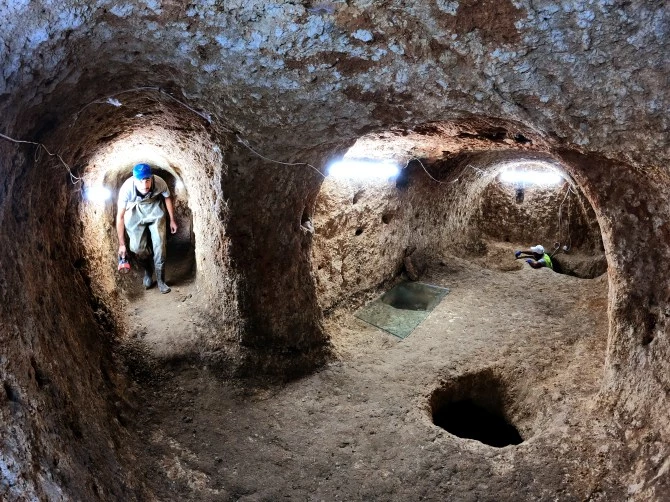
Turkish archaeologists stumbled across the ‘world’s most advanced’ underground city in Turkey
The ‘world’s most advanced’ ancient underground city, kitted out with modern stoves and cellars, has been unearthed for the first time.
Turkish archaeologists discovered the long-lost complex that is believed to have been used as a sanctuary during the Roman Empire.
Named Sarayini, the vast city is filled with subterranean rooms and corridors and covers around 215,000sq ft.
Buried below what is now the Sarayonu district of Turkey’s Konya metropolitan area, is the labyrinth of 30 chambers.
The city is believed to have been a shelter to 20,000 residents during the eighth century, while Christians and Muslims were being persecuted by the Roman Empire and needed protection from raids.
But the discovery was even more shocking as the ancient living spaces were spookily decked with modern furnishings.
These included stoves, chimneys, storage areas, lamp stands, cellars, ventilation systems, and even water wells.
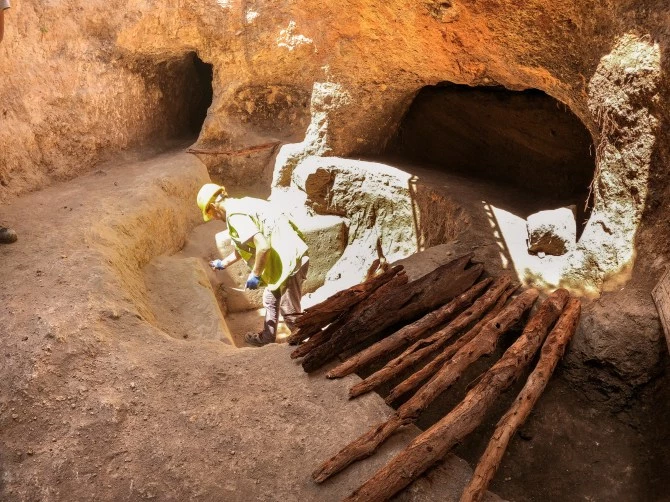 The city is named Sarayini – which translates to ‘palace’ in English
The city is named Sarayini – which translates to ‘palace’ in English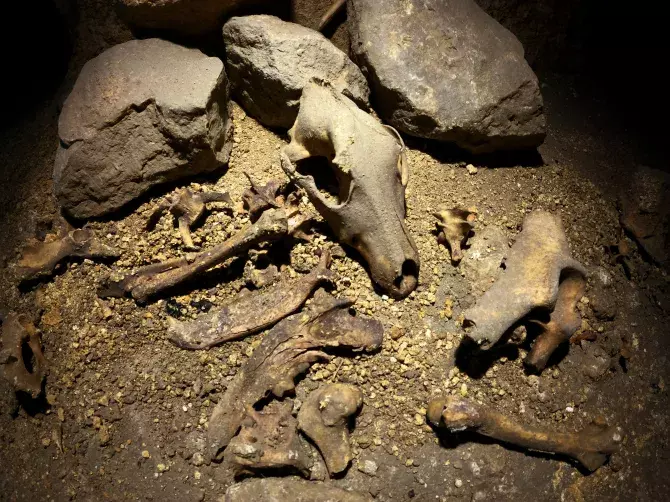 The excavation of the multi-level underground city unearthed chimneys, lamp stands and cellars
The excavation of the multi-level underground city unearthed chimneys, lamp stands and cellars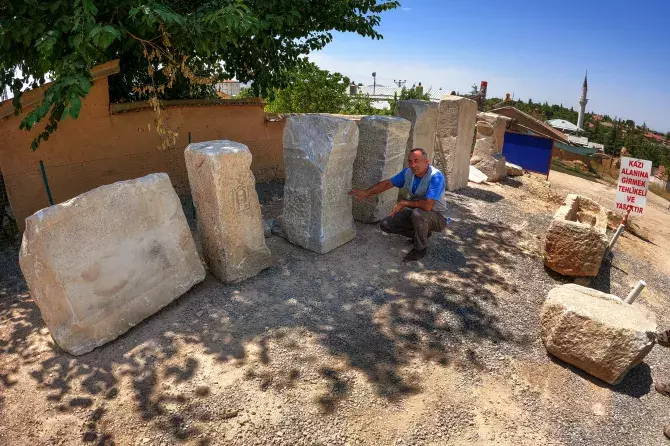 The ancient stones date back to the Roman period in the Sarayonu district of Konya, Turkey
The ancient stones date back to the Roman period in the Sarayonu district of Konya, Turkey
During the excavation, archaeologists also stumbled upon a wide passageway which experts believe is a “main street”.
On the sides of the corridor, there are reportedly numerous galleries, with a network of complex corridors connecting the galleries.
However, due to the small size of the galleries, experts believe that the inhabitants may have been undernourished, and therefore didn’t require much space.
But the mammoth size of the city has also sparked theories that they could have unearthed an ancient palace.
Hasan Uğuz, a Konya Museums archaeologist who is directing the excavation told local media: “We did not think that it could spread over such a large area”.
“We observed that due to the inns’ expansive, comfortable, interconnected, and high-quality architectural design, it resembles a palace, leading us to the conclusion that it’s called Sarayini for this reason,” he added.
Sarayini translates to palace in Turkish.
Digging has taken place at the Sarayini site for the past two years but has not been fully explored due to its sheer size.
Uğuz believes that this year’s excavation work has made a difference in determining how enormous the underground city truly was.
With Sarayini’s neighbouring underground cities between three and seven miles away, research into whether the complexes may be connected is still underway.
It comes after a man discovered one of the world’s largest underground cities where 20,000 people lived – while chasing his chickens.
The unidentified bloke stumbled across the former metropolis while in pursuit of his escaping poultry in his home in Cappadocia, Turkey.
More than 600 private properties that sat on the surface level boasted entrances that connected to the underground society.
Another homeowner stumbled across a secret underground metropolis while renovating the basement of his house.
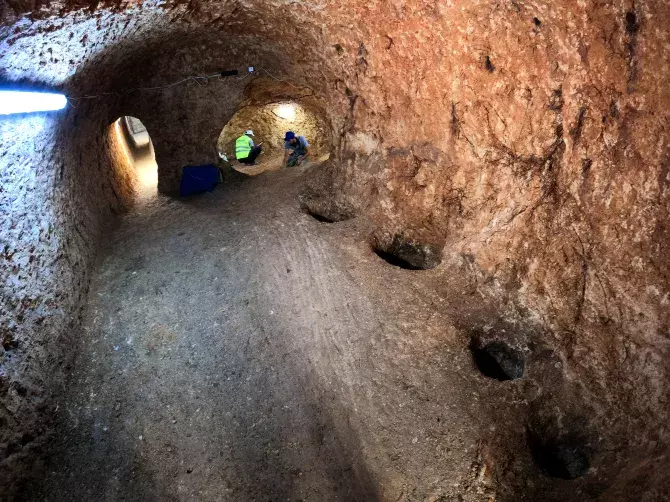
Among the stretches of tunnels, 30 chambers have been discovered so far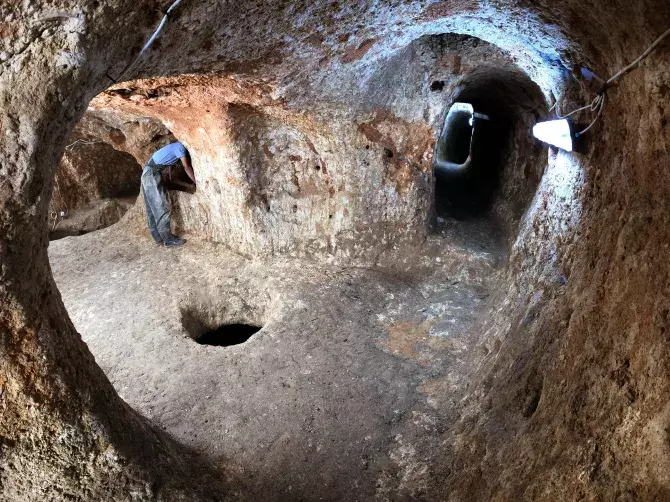
The excavation of Sarayini has been ongoing for two years due to its sheer size
A man in the Turkish town of Derinkuyu took a sledgehammer to his wall and discovered a huge tunnel that led to connecting halls and chambers.
And, an underground “spy city” beneath London filled with the nation’s secrets could also be open soon to the public.
A mile-long series of tunnels dug during the Blitz in World War 2 is being lined up to become a multi-million-pound tourist attraction.
Related Post
A shocking documentary proves that mermaids do exist
SHOCKING Revelation: Thuya, Mother of Queen Tiye, Was the Grandmother of Akhenaten and Tutankhamun—What Ancient Egyptian Secrets Did She Leave Behind?
Breaking News: Astonishing Discoveries at Karahan Tepe Confirm an Extraterrestrial Civilization is Hiding on Earth, and NO ONE Knows!
Breaking News: Researchers FINALLY Discover U.S. Navy Flight 19 After 75 Years Lost in the Bermuda Triangle!
NASA’s Secret Investigation: Uncovering the Astonishing Mystery of the UFO Crash on the Mountain!
Explosive UFO Docs LEAKED: Startling Proof That Aliens Ruled Ancient Egypt!